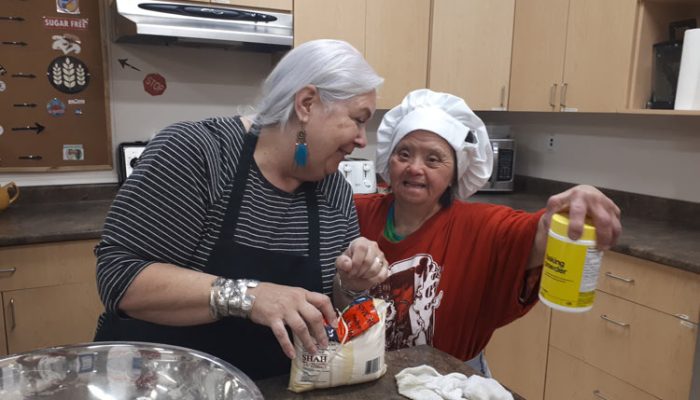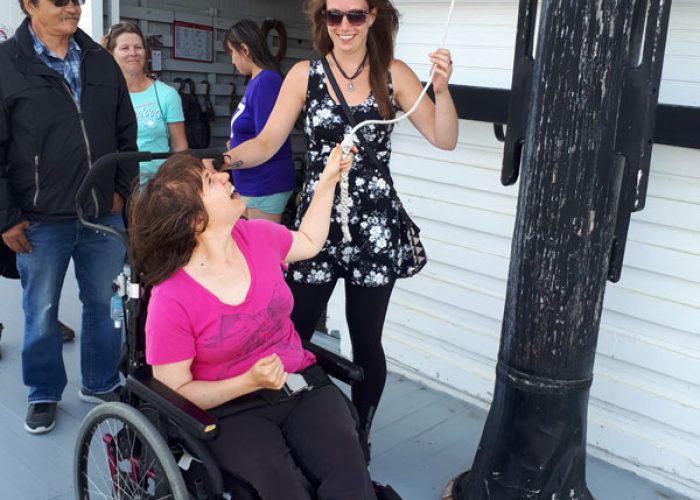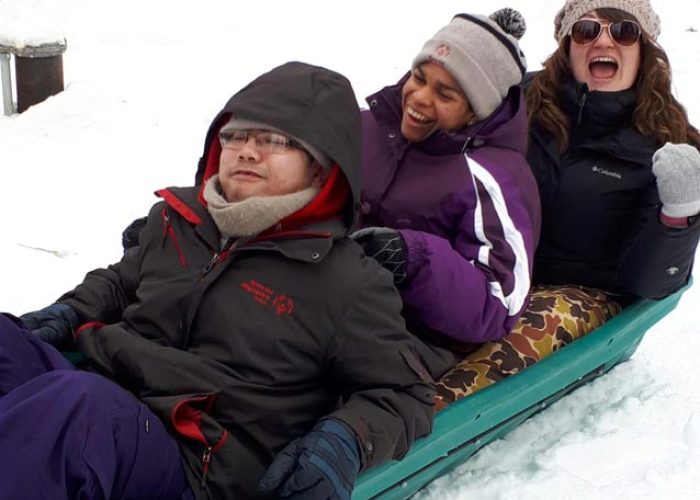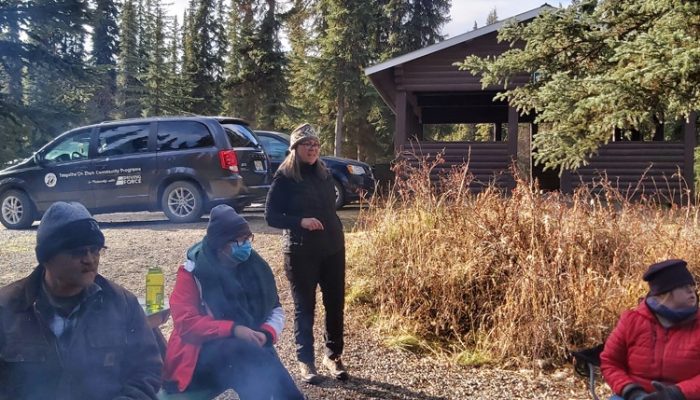Teegatha'Oh Zheh is a non-profit organization whose goal is to promote and enhance the quality of life for people with developmental disabilities.
TOZ DAY PROGRAM
TOZ is a full-time day program designed to fit the individual needs of participants, based on their Person Centered Plan. From these plans, participants help to build their own programming. All services focus on self-efficacy and community integration.
Our services provide on-going supervision, personal support and care, specialized communication techniques, positive role modeling, life skills training, opportunities for educational, recreational and social development, daily living skills, volunteer or employment skills, and community participation.
All supported members of TOZ are referred to the program by case managers in Disability Services of the Yukon Government.

Program objectives
-
- To assist individuals to acquire and/or maintain pre-vocational skills; life skills and communication skills according to their individual potential.
-
- To provide participants with opportunities which are challenging, age appropriate, culturally appropriate and individually focused.
-
- To provide opportunities for individual physical, social, emotional and cognitive growth.
-
- To provide opportunities for participants to contribute to their community.
-
- To provide opportunities for personal growth, skill development, and enhanced quality of life through employment, training, and recreational activities; We assist individuals to acquire and/or maintain pre-vocational skills and access meaningful employment.
-
- To provide support in any area of daily life where assistance is needed in order to allow the client to be as independent as possible.

Dignity of Risk
Anyone who leads a life of dignity and meaning takes risks. Each of us, in the pursuit of jobs, our personal and romantic relationships, our leisure activities, and our adventures, have stepped into the unknown and risked failure, rejection, and even physical well-being. Any personal accomplishment has come from some level of risk-taking. The benefits of succeeding in these situations or learning from our mistakes are crucial in our development as independent people.
People who work and live with individuals with disabilities, usually with the best intentions, often try to eliminate all of the risks and prevent any opportunities for failure in these individuals’ lives. Some will even go to great lengths to avoid even minor shortcomings, such as not allowing an individual with a developmental disability to lose at a board game.
What can result is a life where a person has never been tested, has never had the opportunity to grow, has never experienced the satisfaction of achieving something that was not certain to be accomplished from the beginning.
Taking risks is not equivalent to encouraging recklessness; allowing risk does not mean being unsafe or setting people up to fail. Instead, by supporting individuals in prudent risk-taking and utilizing the wealth of teaching opportunities it unearths, we can bring meaning into peoples’ lives. Providing them with the opportunity to try new things, test their limits, and discover capabilities they never knew they had will help them achieve goals that enrich their lives.
Person-centered Service PhiloSOphy


Person-centered Plans (PCP)
The PCP process begins with the individual building a personal profile. The individual meets with the facilitator and identifies key goal areas they want to explore. The individual then chooses members of their family and community to invite to their PCP meeting. The invitees who attend are asked to do the best they can to help the person achieve their goals discussed during the meeting.
The meeting has two facilitators, one to guide discussion and one to create a graphic representation of the Person-Centered Plan. The individual sets the mood of the room with their chosen snacks, decorations, music, or anything else they feel will add to the experience. Two and a half hours are set aside for the meeting, though the actual time taken varies for each person.
The meeting opens with introducing the PCP process, encouraging those present to collaborate in celebration and support of the individual. The process begins by sharing “What I love about me,” followed by highlighting the person’s achievements. The individual is asked to share their three objective “Dream Areas” they want to achieve. The group discusses ideas, resources and potential pathways to achieve these goals. From these discussions, an action plan is developed to support the implementation of the Person-Centered Plan.
Get in Touch
Working hours
Monday - Thursday 8:30-4:30
Friday - 8:00am-4:00pm
We are here
101 – 301 Lambert Street
Whitehorse, Yukon
Phone - (867) 668-4471
Email: info@tozyukon.com

